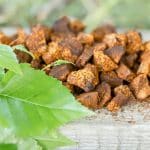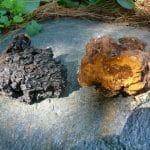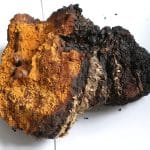Mushroom enthusiasts recognize chaga and cordyceps for their unique health benefits. These fungi offer a blend of bioactive compounds that support wellness in various ways. As they delve into the world of medicinal mushrooms, individuals often discover the immune-boosting properties attributed to these natural wonders. This exploration not only enlightens them about alternative health strategies but also connects them with ancient traditions that revered these organisms for their vitality-enhancing effects. The following content provides an insightful look into how chaga and cordyceps can contribute to overall health, backed by scientific research and traditional use cases.
Historical Use in Traditional Medicine
Mushroom enthusiasts recognize chaga as a significant component of Siberian folk medicine. Traditionally, it was used for immune support. The people of Siberia brewed chaga into teas to harness its health benefits. Similarly, cordyceps has a rich history in traditional Tibetan and Chinese healing practices. Healers valued it for its ability to enhance energy levels.
Both mushrooms have been revered across various cultures for promoting longevity and vitality. They were not merely food items but considered potent herbs with medicinal properties. While scientific research is ongoing, historical use provides insights into how these fungi might contribute to wellness:
-
Chaga: sought after for immune system support;
-
Cordyceps: traditionally used for energy enhancement.
In the realm of modern science, studies are examining these ancient claims more closely. However, comprehensive human studies specifically targeting chaga or cordyceps are limited at this time. Most current research relies on test-tube studies or animal models to understand their potential effects on diseases such as heart disease or kidney issues.
Despite the lack of extensive clinical trials involving humans, the anecdotal evidence from centuries past continues to inspire researchers today—such as Yao et al.—to delve deeper into the therapeutic possibilities that these mushrooms may hold.
Nutritional Profile and Active Compounds
Mushroom enthusiasts often explore the nutritional content of fungi to understand their health benefits. Chaga mushrooms are particularly known for being rich in antioxidants, which help fight cellular damage. They also contain beta-glucans, compounds that support the immune system, and melanin, which contributes to skin health.
Cordyceps mushrooms stand out due to an active component called cordycepins. This compound has been studied for its potential anti-inflammatory effects. Cordyceps also offer a variety of essential amino acids, the building blocks of proteins, and polysaccharides that may aid in maintaining stable blood sugar levels.
The distinct bioactive profiles of these mushrooms contribute significantly to their health-promoting properties. For instance:
-
Antioxidants from chaga can reduce oxidative stress;
-
Beta-glucans may improve immunity by influencing lymphocyte subsets;
-
Cordycepin is linked with energy production and might have anti-cancer properties.
These components make chaga and cordyceps not just food items but potent fermentation products used in various supplements such as capsules or powders. Research continues to review how these fungi affect human health on multiple fronts—whether it’s boosting immunity or managing blood sugar levels. The unique combination of nutrients found within each mushroom type offers a broad view of their potential therapeutic roles.
Health Benefits of Chaga Mushrooms
Chaga mushrooms are known for their health benefits. They may help reduce inflammation. This is crucial because chronic inflammation can lead to diseases. By fighting oxidative stress, they protect the body’s cells. Oxidative stress happens when there are too many free radicals in the body.
The cancer-fighting potential of Chaga mushrooms is linked to betulinic acid. Betulinic acid comes from birch trees that Chaga grows on. Researchers have studied this compound and found it might kill cancer cells without harming healthy ones. Mushroom enthusiasts also credit Chaga with supporting cardiovascular health. Studies suggest it helps maintain blood pressure and cholesterol levels within normal ranges.
Health Benefits of Cordyceps Mushrooms
Mushroom enthusiasts often turn to cordyceps for their unique health-promoting properties. Unlike chaga, which is praised for its antioxidant benefits, cordyceps are widely recognized for boosting athletic performance. Studies suggest that these mushrooms may increase the body’s production of adenosine triphosphate (ATP), which is essential for delivering energy to muscles. This could explain why athletes might find cordyceps particularly beneficial during long and strenuous workouts.
Another area where cordyceps shine is in enhancing libido and sexual function. Their adaptogenic effects help the body manage stress better, which can lead to improved sexual health. For individuals experiencing low sex drive or other related issues, incorporating cordyceps into their diet could potentially offer a natural boost. Potential benefits of cordyceps include:
-
Increased athletic endurance;
-
Enhanced libido and sexual function;
-
Improved kidney health;
-
Better respiratory function.
In addition to these advantages, research has also pointed towards potential renal and respiratory enhancements due to regular consumption of this fungus. They may help improve kidney health by supporting renal function and have been used in traditional medicine practices for this purpose. Furthermore, those with respiratory conditions might find relief through the use of cordyceps as they appear to assist in maintaining healthy lung function.
While more studies are needed to fully understand all the implications, it’s clear that mushroom enthusiasts have good reason to consider adding cordyceps into their regimen alongside other beneficial varieties like chaga.
Comparing Chaga and Cordyceps Efficacy
Mushroom enthusiasts often debate the merits of chaga and cordyceps. Both offer unique health benefits but work differently within the body. Chaga is known for its high antioxidant capacity, which combats oxidative stress and may reduce inflammation. On the other hand, cordyceps are celebrated for their ability to boost energy levels.
The mechanisms behind these effects vary greatly between the two fungi. Chaga mushrooms support the immune system through modulation, helping it respond more effectively to potential threats. This makes chaga a popular choice among those looking to strengthen their body’s natural defences.
Cordyceps mushrooms increase adenosine triphosphate (ATP) production in cells, directly enhancing energy levels and physical performance. Because of this, they have gained popularity among athletes and individuals seeking an extra edge in endurance and vitality. Clinical studies on both types of mushrooms reveal varied results regarding human health outcomes. Some research suggests that chaga can help manage certain health conditions due to its antioxidant properties. Meanwhile, evidence supporting cordyceps’ role in improving exercise performance continues to grow.

Potential Side Effects and Precautions
While exploring the benefits of chaga and cordyceps, enthusiasts must also consider potential side effects. Chaga, for instance, contains oxalates which can be harmful in high amounts. They might cause kidney problems if consumed excessively. It is crucial to monitor intake to prevent such issues.
Cordyceps may pose risks for individuals on certain medications. Specifically, it could interact with blood-thinning drugs. This interaction can increase bleeding risk. Those managing diabetes should note that cordyceps might affect blood sugar levels too. People who are allergic to mushrooms need to avoid both chaga and cordyceps. Allergies can lead to adverse reactions ranging from mild discomforts like rashes to severe health threats.
Chaga and Cordyceps Versus Other Medicinal Mushrooms
Mushroom enthusiasts often compare the benefits of various fungi. Reishi mushrooms, for instance, are sought after for their calming effects. This is in contrast to Cordyceps, which are known for boosting energy levels. People use Reishi as a way to relax and reduce stress, not necessarily to increase vitality.
Another popular mushroom is the Lion’s Mane. It has gained attention for supporting cognitive health through enhancing memory and concentration. However, these brain-boosting properties are not a primary benefit associated with either Chaga or Cordyceps. Instead, individuals turn to Lion’s Mane specifically when they aim to improve mental functions. Lastly, consider the well-known Shiitake mushrooms that have been linked with promoting skin health due to their rich nutritional profile. On the other hand, Chaga does something different; it helps protect cells against DNA damage because of its high antioxidant content.
Each type of medicinal mushroom offers distinct advantages that cater to specific wellness goals. Chaga especially thrives on birch trees and inherits unique compounds from this host that contribute to its protective qualities. Thus, while some mushrooms may offer overlapping benefits such as immune support or anti-inflammatory properties, each has unique attributes making them suitable for different purposes.
Incorporating Chaga and Cordyceps into Your Diet
Mushroom enthusiasts often seek ways to include chaga and cordyceps in their diets. These fungi are available in various forms, such as supplements, powders, or teas. Each form is suitable for daily intake. Powders offer versatility; they can be easily added to smoothies or coffee for an adaptogenic boost. This means they help the body manage stress.
Teas infused with chaga or cordyceps provide a soothing way to consume these mushrooms. They also allow one to enjoy the natural flavours associated with them. Chaga grows on birch trees, imparting a unique taste profile that some find appealing in tea form.
When considering dosage, it’s important to note that recommendations can vary widely. Therefore, consulting a healthcare provider before starting any new supplement regimen is crucial. They can advise on appropriate amounts tailored to individual health needs. For those looking at the health benefits of these mushrooms, studies suggest potential impacts on the immune system and vitality—often referred to as “you” or “life” energy in traditional medicine practices.
Final Remarks
Mushroom enthusiasts have long celebrated the unique properties of chaga and cordyceps, each boasting a rich history in traditional medicine and a complex array of nutrients. The health benefits of these fungi are supported by their respective profiles, with chaga offering antioxidant support and cordyceps enhancing energy and respiratory health. While comparing their efficacy reveals distinct advantages, potential side effects necessitate caution and informed usage. Among medicinal mushrooms, they stand out for their specific applications and potential to improve well-being.
Reference:
Learn More:
Mushroom Substrate | What You Need to Know
How to Build a Mushroom Fruiting Chamber
Updated 10/13/2022















